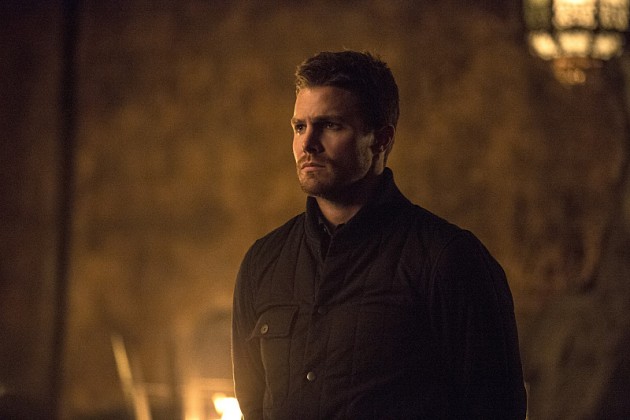
As the 2014-2015 television season is now over, we here at TVOvermind are currently doing round table discussions for several of the shows that we cover here at the website. While The CW’s new DC Comics drama The Flash was a smashing success (which we discussed in depth in The Flash Round Table a few days ago), its mother show Arrow was a had a much more uneven third season. Below, we talk about the highs and lows of Arrow‘s most recent season and what we’re looking forward to next in Season 4 of the series.
Season 3 has, in many ways not been the strongest season of Arrow. What did not work well in Season 3 for you?
Andy Behbakht: There were two things in particular that just didn’t work for me by the time the season was over. The first being Ra’s al Ghul, which hurts that I have to even type that, because Matt Nable is a terrific actor that was just not given the right things to work with. At the start of the season, I think he was a very solid antagonist; I enjoyed that it had a very similar tone to the Ra’s in the comics, but then we got to the disaster that was him wanting Oliver to take over for him and how desperate he was for him to do it. Honestly, this feels like something Ra’s would do with Batman, and I’m getting exhausted with all the Batman elements that they have to give our Green Arrow on this show. I’m not sure if this had anything to do with it, but I almost wonder if the story would have been more enjoyable had it not been for the fact that this show does 23 episodes per season. It was pretty depressing to see our heroes lose week after week for almost eight to nine episodes in a row and seeing the main character now being someone I had way too many problems with from a writing perspective.
The second thing is the Oliver and Felicity relationship: I have mentioned in the majority of my reviews that I do enjoy these two characters as allies/great friends, but not as a romantic relationship. I understand that any genre show has to have some romantic focus as well and that’s fine (e.g., I love how they have done the Iris and Barry relationship over at The Flash). I really loved what Ray and Felicity had going together until it was forcefully concluded. This one just doesn’t work for me because it feels like this season, 65-70% of it, only served that relationship and its fanbase. That’s why it was so difficult to enjoy the season finale because it was really just a Felicity/Oliver fest. This in turn also ruined the character of Felicity Smoak for me. She lost all of the uniqueness that she had for two seasons and literally became nothing but a love interest, who (no offense) spent way too much time crying in almost every episode, which understood for some of those situations. I will get back to this later in the round table.
Jasef Wisener: There were plenty of flaws with the third season of Arrow, but the two biggest things that I can come up with are relationships and Ray Palmer. The relationships this season, particularly that of Oliver and Felicity, were just so horribly written. It ended up painting Felicity in a light that made her a mere shell of herself and ruined two great seasons of positive character progression. It was almost as if the writers wanted to do whatever it would take to keep their most dedicated fans attached to the show, so they decided to spend an entire season pairing up two characters who, I’m sorry, just do not work together. Really, nothing else in the season bothered me nearly as much as how horribly Felicity was treated by the production team. Ray Palmer, though, didn’t help things, either. While Brandon Routh did a fantastic job as Ray Palmer the man (even though his romance with Felicity was 100% just to give Oliver another obstacle), the show absolutely ruined the Atom by making him, essentially, DC TV’s Iron Man. Sure, the tease in the final episode and the trailer for Legends of Tomorrow shows that they’ll be rectifying that catastrophe, which proves the real issue with Palmer: he was intended to set up a spin-off. While the original intent may have been for an Atom-centric show rather than the team-up show that we’ll really be getting, it was clear from the very beginning that Palmer would be a one-and-done character for Arrow that would eventually move over to a different show.
Nick Hogan: I felt like the pacing was very uneven. There was some really exciting stuff going on this season, but it seemed like it would move very slowly (over the course of five or six episodes), and then only get one episode as a resolution. That being said, it also felt like they were trying to jam pack stories that they had plenty of time to tell. By the end of the season, I had nearly forgotten that Sara had died at the beginning. Remember Danny Brickwell and Ted Grant? Those were great arcs that we didn’t get to explore enough.
Blaise Hopkins: I think my biggest problem with the season was that it felt very crammed. The season was full of heroes, which isn’t a bad thing, because that’s ultimately what we want to see, but it could have been handled better this season. At times I felt as though it took away from the main plot and forced at points. I would have liked a longer and stronger build up for Ra’s, because it felt like he was introduced, disappeared, and would pop up until the final string of episodes.
Araceli Aviles: The flashbacks, which in the past have been very cohesive and fit well with the present-day storyline, were fragmented and had no element of surprise this season. I also think the flashbacks did a great disservice to Tatsu’s character. In the present day, so much of the storyline felt more fragmented than cohesive. The week-to-week criminals almost felt forced at times, and though Ray Palmer brought a lightness to the show, I never saw any sign of his “hope for Star City” come to fruition. What really frustrated me were the relationships that were torn apart. The first was that of father and daughter Quentin and Laurel. Sure, Quentin had a right to be upset, but he let that anger cloud his judgment to the point that it put innocent people, including his daughter, in danger; he only barely avoided that in the season finale. The second, and worse still, was the fragmented brotherhood between Oliver and Diggle. Diggle has been the one steadfast character on Arrow since the beginning. He had to adjust to being a husband and a father this year, but he never struggled with his identity like his friends, which is why his friendship with Oliver was so important. I understand why their relationship will never be the same; Oliver crossed a line, even if it was to save them all. I only hope that the writers have a good game plan for getting this brotherhood back on track.
Laura Schinner: I’ve been quite vocal about my issues with this season so I’m going to try to keep this as short as possible. My biggest issue was with Ray Palmer, who started his run on the show by stalking Felicity (yes, writers, pinging someone’s phone IS stalking), and then somehow ended up in a relationship with her even though she herself called him a stalker. Sorry, but I’m just not okay with that. Ray was pretty useless outside the fact that he was a romantic foil for Oliver and that they wanted to introduce him for his own spin-off. They could have told a much better story for Oliver/Felicity that would have been a lot more rewarding in the end, but failed to do so. The other big problem had to do with the villains this season: Malcolm and Ra’s. Most of the people I know spent the season wondering why no one had killed Malcolm yet but instead of doing this, Oliver teamed up with him and then made him the new Ra’s. There is no logical explanation for this. The Ra’s story didn’t work well either, and it really crashed and burned when he forced Oliver to marry Nyssa, who is an established gay character. Again, that’s just not okay.
My other main problem with the season, which did eventually get resolved, had to do with all the secret keeping. The constant lying to Thea and Lance was incredibly frustrating, making these characters we want to like seem like terrible people. Also, please explain to me how Lance, a detective, could tell within seconds that Roy was Arsenal but could not figure out that Oliver was the Arrow or that Laurel was the Canary instead of Sara? Dumbing down your characters for the sake of plot isn’t a great idea. Suffice it to say, I’m ready for a fresh start with Season 4.
Chris King: There were three major issues with Arrow Season 3, which was the show’s most ambitious season yet, and all three of them caused problems with the show’s main characters. First and foremost, the series became too crowded this year. By trying to introduce Ray, giving more attention to Nyssa (although Katrina Law was great, as always), and setting up Ra’s as this season’s big bad, Arrow stretched itself a little too thin and tinkered too much with the show’s typical format, isolating characters from one another and losing a bit of that magical chemistry we had come to love.
Second, Ra’s was not as dynamic a villain as he could have been, as his motivations became too convoluted and caused Oliver and some of Arrow’s other major players to act out of character. Every decision and action had to fit into the plans that Ra’s concocted, but that did not always feel natural or authentic.
Finally, as much as I love John Barrowman, his promotion to series regular and the need to have Malcolm as a consistent presence on the show also led to some damaging choices for Oliver’s character. And in a season that needed to be so character-driven for his journey to work, too many of Oliver’s actions were dictated by the plot, primarily to keep Malcolm alive and around when he should be dead or in prison.
And to follow up with that, what did work with season 3 of Arrow?
Andy Behbakht: Pretty much all the characters that weren’t Oliver Queen, Felicity Smoak or Quentin Lance. I wrote a feature last week about why Katie Cassidy was the MVP of Arrow Season 3, and Laurel was definitely someone that just really worked this year. But to mention a few other things that worked this year, can we just agree on how terrific Thea’s character was ? While Thea’s arc was a bit rocky into becoming Speedy, I enjoyed most parts of her presence in Season 3 and just her evolution on its own was so much fun to follow. Whenever Felicity wasn’t having any drama with Oliver and all that, I actually liked her: her new friendship with Laurel was something that I would love to see more of. That episode when Laurel hugged Felicity and had her as support still gets to me on a big emotional level (I guess I am a sucker for hugs?). Ray and Felicity together were a lot of fun, and that was a terrific relationship from the start; Ray had a lot better things to do than Oliver this year. And lastly, let’s not forget the gift that is Katrina Law’s Nyssa al Ghul. As much as I love John Barrowman, I would have no problem if he got demoted to guest recurring, while Law gets promoted to series regular.
Jasef Wisener: For me, the thing that worked best this season was the way in which the show built up Thea and Laurel. Thea had a stronger arc in Season 3 than maybe any single character over the entire run of Arrow (once she ditched the belly shirts, at least), and it really made me excited to see where the writers send her from here. Hopefully, they give her a better role on Team Arrow than they gave Arsenal this season. Laurel, though, was the big surprise for me. By the end of Season 2, Laurel had become one of my least favorite characters on television, and I completely understand now why the writers did that. By sending Laurel to the absolute lowest point possible, her arc this season of redemption and finding her heroic identity ended up working better than it ever could otherwise. Honestly, Season 4 of Arrow could be Speedy and Black Canary working together for 23 episodes, and I think I would be just fine.
Nick Hogan: Well, I think the Ra’s al Ghul story was one of my favorite the show has ever told. Even if it was a bit drawn out, by the end, I was a believer. I also think that several main characters had fantastic arcs this season. Oliver, Diggle, Laurel, and Thea, to name a few, were central to some of the season’s best stories. I love them all the time, but this season they were done especially well.
Blaise Hopkins: Although I didn’t like how it was organized, I would have to say the inclusion of more heroes. The fanboy in me absolutely loves the ideas that these writers have, because we saw the traditional Team Arrow, Atom, Black Canary, Katana, Wildcat, and even Speedy. That’s not including The Flash and Firestorm. You have to love it; this show and The Flash are comics coming to life. More importantly, though, I believe Arrow Season 3 did a great job in showing us its characters’ darkest and lowest points. The theme was all about identity, and Oliver loses himself the deeper he goes in trying to be the single symbol that protects the city. Although there were plenty of flaws and people didn’t like how dark the season was, I think it was necessary for the series long arc of Oliver’s transformation into Green Arrow and being a seasoned hero. Remember, we started this show as an origin story; we can’t forget that it still is.
Araceli Aviles: I confess, I’m actually overjoyed that Oliver and Felicity ended up together. The trouble with these two this season was that they veered so far off their initial trajectory. Beyond that, they are actually extremely well-suited to each other, and I think even people who don’t ship this couple will be satisfied with them together so long as the drama isn’t so focused on them alone.
Laura Schinner: As much as Season 3 had its issues, there are a few things that really worked. And most of those things involved the female characters. While I still absolutely hate Malcolm Merlyn, I did enjoy Thea’s arc this season after she was FINALLY told about Team Arrow. We got to see Thea take a more active role, being allowed to make decisions for herself now that she has all the information. By far the best part of the season was all of Thea’s quips about Malcolm, voicing everything we the audience felt about him. Laurel’s arc also ended up working much better than I expected. I was reluctant at first, upset that they killed Sara just to open the door for Laurel to become the Black Canary. It took her a while to find her place on the team, and though she stumbled A LOT along the way (she probably shouldn’t have tried fighting people on her own when she had little to no training), eventually, it started working. Her friendships with Felicity and Nyssa were especially fun to watch develop, and while I still may not be Laurel Lance’s number one fan, this is the most I’ve ever liked her character.
Chris King: A lot of Arrow Season 3 worked for me. The show did a terrific job at developing supporting players like Roy, Laurel, Thea, and Nyssa, giving them their own satisfying journeys this season while also adding more depth to each of their characters. Additionally, while I’ve heard others say that Arrow “lost” the character of Felicity Smoak this year, I would disagree. Felicity did not have as many moments to shine in Season 3 as she has had in Arrow’s previous two seasons (mainly because she was isolated off with Ray for over half of the year), but when she got her opportunities (such as the “I don’t want to be a woman you love” scene in “Uprising”), they were terrific and illustrated how strong and confident Felicity has become since we first met her back at the beginning of Season 1. She was unafraid to stand up and state how she felt, and even if she wasn’t always smiling or cracking jokes, it was really fulfilling to witness her growth. And lastly, I thought the series was mostly successful in bringing us Oliver’s journey of self-discovery, and I felt that he really deserved his chance to drive off with Felicity at the end of the season–that was earned, in my opinion.
 Follow Us
Follow Us
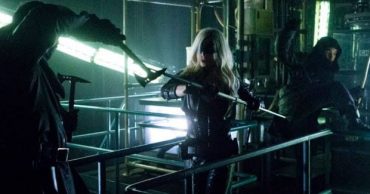
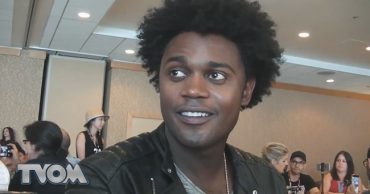


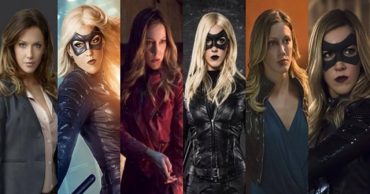
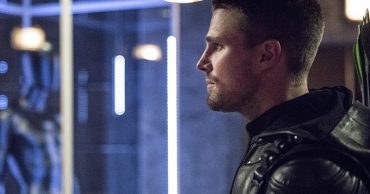
I am so glad it wasn’t just me who didn’t get Oliver and Felicity. I always saw them as a brother sister relationship like Dean and Charlie. Ray and Felicity worked better. Oliver with Laurel or Sarah was very sexy, you know the sister thing.
Yeah you are not the only one who got that vibe, she was came across as the annoying little sister that you are overprotective of, nothing romantic in any shape or form.
I have NO idea what show the Round Table panelists watched all season!
Season 3 was an unmitigated disaster, without a single redeeming quality. To read that the Round Table felt that the Laurel and Thea characters were well-developed this season tells me I can’t trust their opinions about good stories or character development.
Of course, my opinion is just my opinion–and I am admittedly someone who was a so/so fan of Season 1, but was Fanatical about how good Season 2 was (The BEST show, cable or broadcast, that year).
Most of all, I strongly believe that comic-inspired movies/tv shows should NOT be faithful to the storylines in the comics. (Why would I want to watch THAT?) Bottom line: I’m probably not the person who “approaches” Arrow like the panelists. But, maybe the panel should have someone who approach the material from a different point of view. Would be more interesting. [No, no: I’m NOT looking for a job on the panel!]
I’ve never picked up a Green Arrow comic. Just sayin’.
Right there with you, man. And I thought that was something a few of us definitely made clear in the article, but hey, what do I know? I just helped write and edit it.
Honestly only Laurel and Thea are bringing me back next season.
There is a saying “to much of a good thing” and this defines Felicity. I found her more annoying than Iris West!!!! Marc needs to remember not his entire fan base cares so much about ships.
The story arcs of Laurel, Thea, Ray and Nyssa were the only saving graces of Arrow Season 3. Most of Felicity and Olicity were simply awful to watch, that I scratch my head to wonder where the girl of Season 1 had gone.
For most of the time I couldn’t even fathom Oliver’s reasoning for doing the things he did. While for some characters decisions I could say I don’t agree with, but at least I can understand. With Oliver however I am left wondering how will this character ever become Green Arrow or the Oliver Queen of the comics that I know so well and love. At the moment, I couldn’t careless if he stayed in Coast City forever more and left the show to the heroes left behind who have the heart and mind to save the city they love. This Oliver Queen has been wussified by Olicity and bad writing to point of no return. I truly hope we will see the last of Olicity in season 4 as they really don’t work.
And yes Andy Behbakht I really hope we do get to Green Arrow & Black Canary as a crime fighting kick-ass couple, it would be such a waste of show not to do that and I would be hugely disappointed. It has been teased from Season 1, so let’s see that payoff.
I think the best things about the season were Roy’s growth and Thea’s arc once it stopped being about Malcolm Merlyn and became about her.
The worst things were the push to produce three new superheros from scratch this season (Laurel, Ray and Thea) which resulted in the storytelling being a mess for the first two and Oliver making bad decisions for the third, and the Ra’s storyline which required Oliver to lose a few million brain cells to make it work. At the end of every season, Oliver learns he can’t do it alone, he needs his team. And for the start of every season, he forgets.
It took Oliver five years of torture away, and three years of fighting in Starling City to become who he is today. It took Sara five years of working with the League of Assassins and Diggle three tours of duty and working security to get where they are. That the reason Sara’s arc in season 2 didn’t take away from the show overall, she came on a fully formed vigilante, no need to spend time justifying her with boxing lessons or technology tinkering. Even Roy was a street fighter for years. And yet Laurel, Ray and Thea go from no fighting skills to being masked superheros. (At least Thea had all those archery awards from school and had been trained by Malcolm for a year and Ray did it because he wanted to save people who couldn’t fight for themselves.)
I think there really are too many masks and costumes in Starling City now, and Diggle is going to get his next season. When everyone is a superhero, no one is. The show works best when it deviates from pure canon and allows characters to develop as complex, whole characters, not the writing for plot that made this season so unsatisfying.
“Arrow” is my favorite show. Did I love everything that happened in S3? I did not. But, it
is STILL my favorite show. I am VERY excited for S4. I love Oliver and Felicity as a couple, and am looking forward to them being in a romantic relationship, and working together as teammates again as well. Oliver being the Green Arrow and having an active public persona as “Oliver Queen”, means he will have reconciled his dual personalities, and can only make his character stronger. As far as I can tell, everyone on Arrow works very hard to make it entertaining, and the best show it can be. “I” for one, appreciate that.